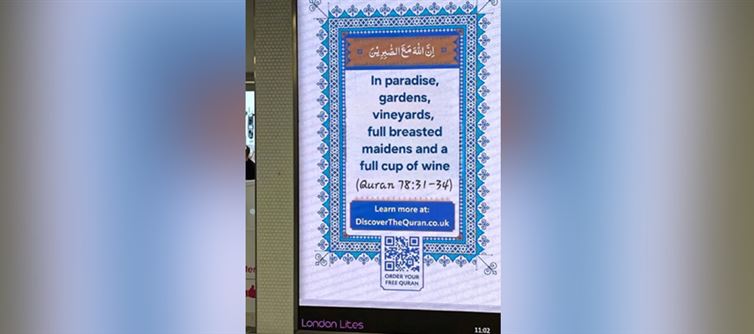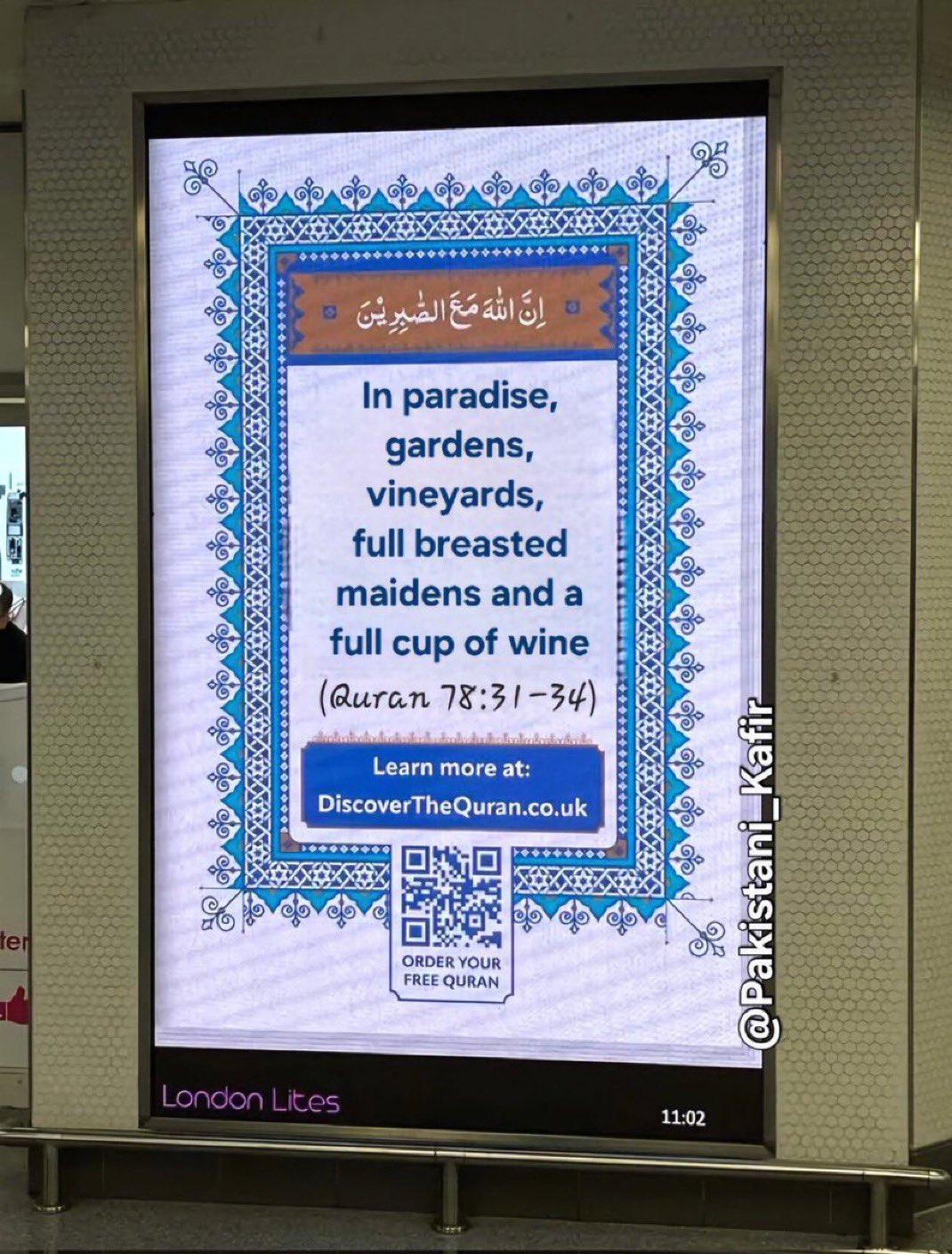
The verses cited in the poster are part of a broader Islamic tradition that describes paradise (Jannah) as a place of ultimate reward for the faithful. Interpretations of these passages vary, with some scholars emphasizing the metaphorical nature of the descriptions and others viewing them literally. The inclusion of "full-breasted maidens" (often translated as "houris") has long been a point of discussion, with traditional exegesis suggesting these are celestial beings created for the pleasure of the righteous. However, presenting such imagery in a public advertisement has been seen as a departure from the norm, especially in a secular and multicultural context like London.
 Under the UK's advertising regulations, as overseen by the Advertising Standards Authority (ASA), religious advertisements are not prohibited but must adhere to general rules against misleading, harmful, or offensive content. The decision to allow such posters likely rests with the media owner (in this case, london Lites), who has the discretion to accept or reject advertising content. While the ASA can intervene if complaints lead to a ruling of non-compliance, the initial placement suggests that the campaign has passed initial scrutiny or that no formal complaints have yet been lodged. This has led to accusations of double standards, with some users noting that similar content from other religions might face stricter oversight.
Under the UK's advertising regulations, as overseen by the Advertising Standards Authority (ASA), religious advertisements are not prohibited but must adhere to general rules against misleading, harmful, or offensive content. The decision to allow such posters likely rests with the media owner (in this case, london Lites), who has the discretion to accept or reject advertising content. While the ASA can intervene if complaints lead to a ruling of non-compliance, the initial placement suggests that the campaign has passed initial scrutiny or that no formal complaints have yet been lodged. This has led to accusations of double standards, with some users noting that similar content from other religions might face stricter oversight.The controversy reflects ongoing tensions in Western societies about the integration of Islamic practices and the limits of religious expression. With London's diverse population—including a significant Muslim community—the poster campaign could be seen as an attempt to engage with or proselytize to non-Muslims. However, its explicit focus on sensual rewards has alienated some, fueling debates about whether such advertising undermines efforts toward interfaith harmony. The incident also highlights the challenges of balancing freedom of speech with public sensitivities in an increasingly polarized world.




 click and follow Indiaherald WhatsApp channel
click and follow Indiaherald WhatsApp channel